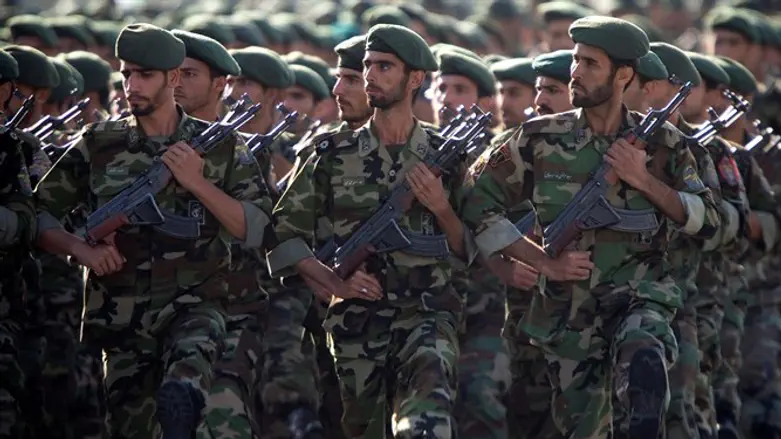
The Trump administration is weighing whether to label the Islamic Revolutionary Guard Corps (IRGC) as a terrorist group, part of an effort to use every possible tool in the box to pressure Tehran, CNN reported on Monday.
Senior current and former officials familiar with the matter told the news network the White House is considering the move, and that the debate has senior Cabinet officials squaring off on both sides.
The designation decision, formally under the State Department's purview, is taking on heightened importance as part of the White House's increasingly aggressive strategy towards Iran. Officials have been debating it for several months and have yet to reach a consensus, the report said.
While some warn a designation could pose risks to U.S. personnel and installations overseas, it would allow the White House to freeze IRGC assets, impose travel bans and levy criminal penalties on top of pre-existing economic sanctions imposed by President Donald Trump.
"The United States is trying to change malign behavior of the Iranians and deter their aggression," said Chris Costa, the executive director of the Spy Museum and a recently retired special adviser to Trump on counterterrorism. For that goal, "the special designation is a very important tool," he said.
Secretary of State Mike Pompeo is in favor of the designation, sources familiar with his thinking say.
"There's lots of things that are being discussed, things that will prove, we believe, very effective at the end goal-which is, at the end of the day, what matters, right?" Pompeo told CNN in a recent interview. "The end goal is to convince the Islamic Republic of Iran to be a normal country."
He declined to discuss specific plans for future sanctions and designations.
At the same time, labeling an official state military as a terror group, particularly a group with the reach and force of the IRGC, would be unprecedented and could expose US diplomatic and military officials to additional hazards, some warn.
The powerful military and security body is key to Iran's influence in the Middle East, often linked to Iran's support for terrorism. The organization controls wide swaths of the Iranian economy, including the energy sector.
Director of National Intelligence Dan Coats has cautioned the administration that designating the IRGC could pose dangers to U.S. forces, according to one source familiar with the matter.
While the intelligence community doesn't make policy decisions, its head, Coats, is the lowest common denominator who pools the analysis and assessments of all the agencies to advise policymakers.
Former Secretary of State Rex Tillerson spoke publicly about the potential dangers of designating the IRGC, noted CNN.
Trump ousted Tillerson in March, and later stated that the reason behind the dismissal of Tillerson was his support for the 2015 nuclear deal signed between Iran and world powers. Pompeo, who replaced Tillerson, is known for his opposition to the Iran deal and has been a vocal critic of the Islamic Republic.
Since Trump announced his intention to abandon the Obama-era Iran nuclear deal in May, his administration has imposed a swath of new sanctions, including one that will require all countries to eliminate Iranian oil imports by November.
The IRGC has in the past warned the United States against designating it as a terrorist group, saying U.S. regional military bases would be at risk if such a move were to take place.
More recently, a senior Iranian military commander threatened that Iranians would punch Pompeo in the mouth, after the top American diplomat announced that Washington would impose unprecedented sanctions against the Islamic Republic.
In October, Trump authorized sanctions aimed at the IRGC, calling the Revolutionary Guard "the Iranian Supreme Leader's corrupt personal terror force and militia." He urged U.S. allies to follow suit and impose sanctions against Iran to target its support for terrorism. With a special foreign terrorist designation, the administration could levy a wider and more severe set of sanctions, noted CNN.
